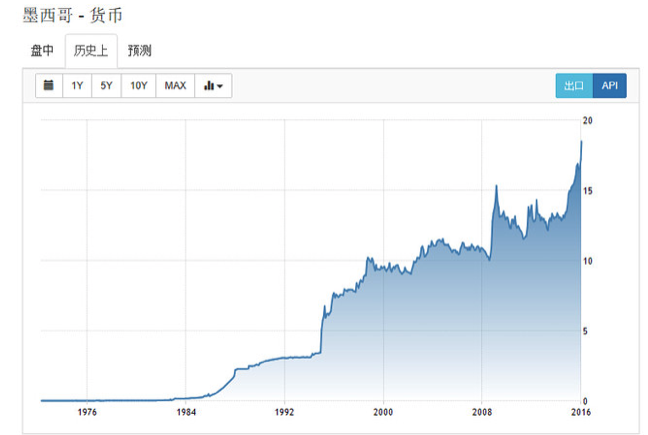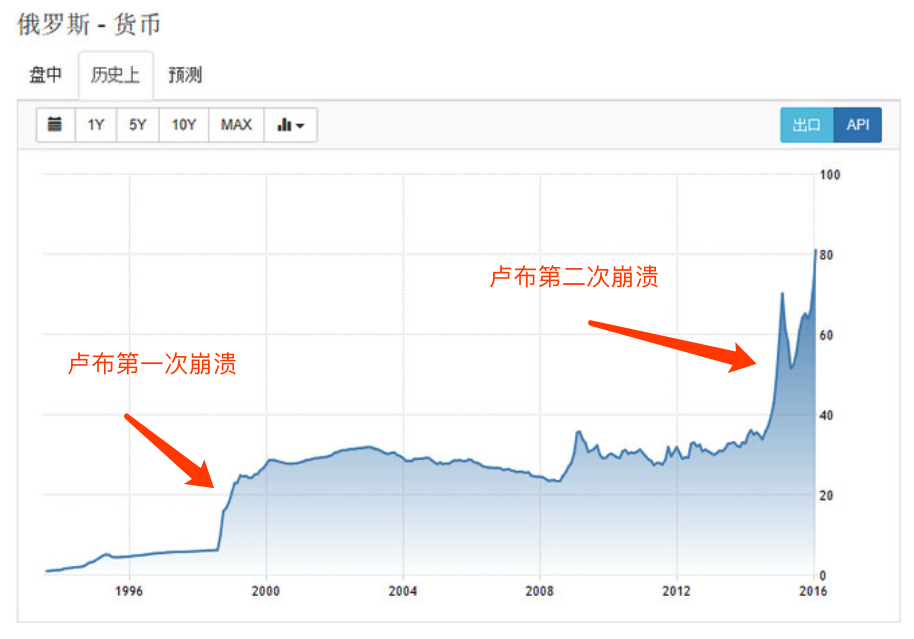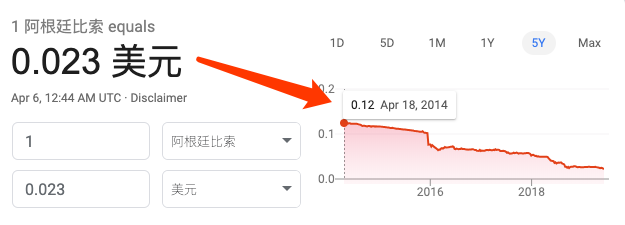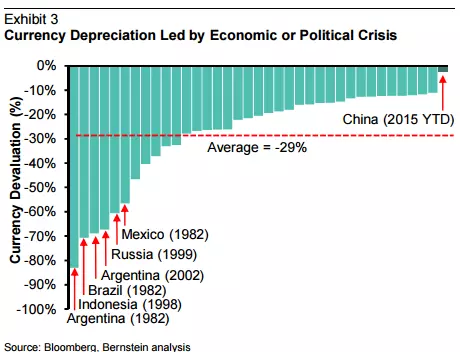The crisis of money: What is the meaning of understanding? What is the relationship with Bitcoin?
Bitcoin supporters insist that bitcoin is a better currency, and that the legal currency as a comparison is not perfect. In fact, the root of this disagreement comes from the fact that the current legal currency system is more derived from the Keynesian school, and the supporters of Bitcoin are often the supporters of the Austrian (Austrian school) theory, and this will inevitably arise. Great differences.
Friends who have not understood economics should not be very clear about this reason. I will explain it briefly. In fact, there are many factions in economics. The more mainstream ones are the Chicago School, the Austrian School, and Keynesianism. Apply a description to simply let you know the difference between these schools:
"1. Chicago School: Fully maintain market competition, and do a good job as a referee. It is like a teacher who watches children play games and smoke outside the classroom.
2. Austrian school: respect the absolute market economy, absolute freedom, let go, let the market properly arrange their own arrangements.
- The blockchain revolution has arrived? Living in the market for a long time to be the final winner
- Market Analysis | The Big Three (BTC, ETH, XRP) have been under the city, who will pull the trigger
- Bitcoin whales return and start large-scale repurchase, Tom Lee said Bitcoin should now cost $14,000
3. Keynesianism, the economy can't be done without government control, or it depends on the government to save! ”
Simply look at the "service tenet" of these factions. I believe that you can see at a glance which faction is more liked by governments around the world.
As the "Audio's best cryptocurrency experiment" – Bitcoin, it is hoped to replace the legal currency system that disappoints people.
There are still a lot of opposing voices such as: "When the French currency is good, why should it be replaced?"
Then the question is coming, is the currency really good? Of course not. There are several key issues in the currency, including the impact of inflation caused by endless currency overspending on the wealth of the people, and the fact that the national debt brought by unrestricted currency is a complete Ponzi Scams, etc., have caused people to question the "credit currency" that is not old or old-fashioned.
But in fact, what really deserves the attention of life is not only these "silent harvests", but also "real disillusionment" – the currency crisis.
The currency crisis is generally seen as part of the financial crisis. A more common definition is the nominal depreciation of at least 25% of the currency, or the violent fluctuations of a depreciation of more than 10% over a short period of time.
Why "financial crisis", "economic crisis" and even "subprime mortgage crisis" "European debt crisis" These terms are heard very frequently, but in my eyes, the more terrible "currency crisis" is rarely heard by everyone. Because these crises are all the countries that are attracting attention from the world, the United States and European countries, and the currency crisis is often a small economy, or a country or region that does not appear in the eyes of the world, so it is for domestic non-professionals. In fact, the currency crisis does not seem to happen very often.
However, the currency crisis actually occurs very frequently, and the financial crisis does not happen very often. In less than five years from 2014 to 2019, more than 60 countries met the definition of a currency crisis. If the timeline is stretched again, there have been more than one hundred countries in the past three decades.
In fact, it is very frequent.
We often see news and experts say how fierce the financial crisis is, how many people in large companies have gone bankrupt, how many people have lost their jobs, and so many people have lost their jobs. But once the currency crisis occurs, the number of people who are affected by it can be as large as the total population. Count the huge numbers.
Moreover, the financial crisis has the greatest impact on the financial system, and the participation in the financial system (above the middle class) itself should be aware of this risk. After all, before the financial crisis, many people continue to gain more and more through the financial system. wealth.
Once the currency crisis occurs, the worst victims are often ordinary people who are not greedy, diligent, and have not done anything wrong.
Just like India’s previous banknote movement, there would be no property allocation, no real estate, stocks, gold, or even ordinary people who would not deposit money in the bank. Their life savings are only a few thousand denominations, one night. Between the two, many people, even on the way to the bank lined up, no longer wake up.
In the international market, the Indian currency has become a joke:

Many people think that the collapsed currency crisis in countries like Venezuela, Zimbabwe and Iran will not appear on us, so it is useless to prepare bitcoin, but it is not. Bitcoin, as a globally recognized “crisis currency”, will have a huge positive for Bitcoin regardless of the “decent” currency crisis in any major economy. In the long run, the crisis will continue to happen, which is why we firmly hold Bitcoin.
Next, I want to give a model of several famous currency crises in history (both large economies), as a case to explain why the currency crisis will continue to occur, and not in small economies (small economies) There are dozens of which have happened in recent years).
I. Mexico, 1994.
Late at night on December 19, 1994, the Mexican government suddenly announced that its currency depreciated by 15%. This decision detonated the market and people sold it wildly. With the devaluation of the peso, foreign investors withdrew a large amount of funds, and Mexico’s foreign exchange reserves fell sharply by nearly 4 billion dollars in two days. In the short three days after the Mexican government announced its depreciation, the exchange rate of the Mexican peso against the US dollar plummeted by 42%.
The exchange rate has depreciated by 42% in three days. Do you think foreigners are willing to do business with Mexicans? Are investors dare to invest? So the Mexican economy collapsed.
Generally speaking, the signs of economic collapse in capitalist countries are all stock market collapses (because China is not a capitalist country, so the economy is good or bad, and A-shares are not good). The impact of capital outflows on the Mexican stock market was huge. After a week of exchange rate collapse, the Mexican IPC index began to fall, falling 6.26% on the first day and 11% on January 10 after half a month.
Three months after the currency crisis, the Mexican stock market IPC index has fallen to 1500 points, and the stock market fell even more than the currency depreciation, falling by 48%.
This is also the standard case I said "a collapse of a country, often starting with a currency collapse."
Of course, Mexico has not slowed down since:

The economy that has been booming in the economy has become what it is now. Everyone knows what it is… I am sorry for it.
Second, Asia, 1997.
The Asian financial crisis, this is a typical example of every mention of the financial crisis caused by the financial crisis, typically as much as Venezuela's bitcoin.
Simply talk about this storyline: Asia in the 1960s and 1970s after the Second World War began to develop from the shadows of the past and entered the industrial and financial era. After the completion of the foundation, in the 1980s and 1990s, several countries in Asia began to take off, including the "four little dragons" and "four little tigers." The rapid development of Asian countries naturally adds “leverage” to the economy, that is, high debt, and it is a dollar debt.
Soros discovered this problem. He found that the currencies of these countries in Asia were vulnerable. Because of the huge foreign debts and the empty foreign exchange reserves, these countries in Asia did not have the power to fight back.
Soros certainly guessed it, so he began to short the currency of emerging economies (starting in Thailand), which brought huge impacts to major Asian countries (regions), directly detonated the currency crisis, and ultimately brought shocking Asian finance. crisis.
During the financial crisis, the most affected economies were: Thailand, which had doubled its short-term depreciation; South Korea, which had doubled its short-term depreciation; and Indonesia, which had a six-fold depreciation.
Many people think that Soros is the chief culprit of the Asian financial crisis. In fact, the abnormal economic development and uncontrolled currency overshoot are the real culprit of the currency crisis. Soros is just an ordinary person who dares to dismantle the "new clothes of the emperor". People are gone.
The Asian financial crisis has actually "trapped" a big country, Russia.
Third, Russia, 1998, 2014
The ruble crisis in Russia has actually been many times. Even in the past 2018, the ruble has depreciated by 20%.
As can be seen from the ruble's chart, if this picture is reversed, the trend of the ruble is a standard trend of the return of the altcoin:

When the Soviet Union just disintegrated, the ruble had a sharp devaluation. (In the part of the figure before 1996), because of the painful period of socialism turning to capitalism, Russia implemented "shock therapy", which proved to be ineffective and brought a very miserable inflation to Russia. .
In 1998, Russia announced the devaluation of the ruble and the ruble collapsed. In addition, Russia announced that it "does not pay off debts". The chain reaction led to the complete collapse of the economy. Russia has not slowed down for a long time until the arrival of Putin the Great.
In 2014, it was caused by oil sanctions that directly led to the collapse of the ruble. I believe that everyone still has the impression that for a while in the past few years, everyone has set off a wave of buying things in Russia, such as the iPhone, because the devaluation of the ruble has caused the Russian iPhone to be twice as cheap as the domestic one. Of course, it didn't take long for Apple to raise prices.
This is the power of the currency crisis. As long as the exchange rate is in trouble, the things you need in your life will immediately have problems. (Especially, food dependence on imports will cause a fundamental problem of people's livelihood, because the ups and downs of rice and oil are the most serious damage to the people).
Perhaps the economy has been sluggish, and the gap between the rich and the poor is getting bigger and bigger. Is it why old Maozi doesn’t want to struggle and only loves to drink?
Fourth, Argentina, Turkey, Brazil and other dozens of countries, 2018.
In fact, in addition to the above-mentioned typical examples, there are countries such as Argentina, Turkey, Brazil, etc. in recent years (in dozens of countries with currency crises in the past five years), and economic problems caused by currency crisis. Frequent, debt crises and small financial crises are knocking on the door every day.
Argentina actually had a currency crisis in 2002, but it was caused by the debt crisis, let alone talk about it. In recent years, Argentina’s currency depreciation has been five times that of five years (0.12 to 0.023):

Turkey is not good enough. The currency has depreciated nearly three times in the past five years.
In the past few years, the “emerging” economies have been continually experiencing a currency crisis. In fact, the depreciation of the legal currency has released the upper-level economic pressure to the ordinary people, so that the economic structure can be maintained.
The worst is always the people.
In addition, I have seen some articles, and I also talk about the possible crisis of China's currency. This should not be able to talk more and send a picture. Everyone can experience it. If it can't, then nothing happens. After all, the RMB is still Very stable.

Above, I talked about the currency crisis. The main purpose is to let everyone know that although our current economic volume and national strength can guarantee that it is difficult for us to have a currency crisis, the fact is: in addition to the US dollar, the Japanese yen, the euro and the renminbi, the rest of the world is always There is a possibility of a currency crisis, after all, one quarter (or more) of them are experiencing a currency crisis.
Finally, why do we understand the currency crisis?
Because every currency crisis occurs, it is the best advertisement for Bitcoin.
(Author: William Chen)
We will continue to update Blocking; if you have any questions or suggestions, please contact us!
Was this article helpful?
93 out of 132 found this helpful
Related articles
- Bitcoin skyrocketed, and investors are planning to do this after standing for $5,000…
- 100,000+ where is the reflection of writing in the currency circle for three years
- Vitalik "Tears" Dr. Doom: Even if the cryptocurrency fails, it will have a positive social impact.
- In the 5G era, everything is on the chain
- Was it up and was abandoned? Mike Novogratz: Selling Litecoin and buying Bitcoin
- Opinion: Is the CCID blockchain rating really reliable?
- Interpretation of the new SEC framework: How to make your own Token not classified as a "securities"?





